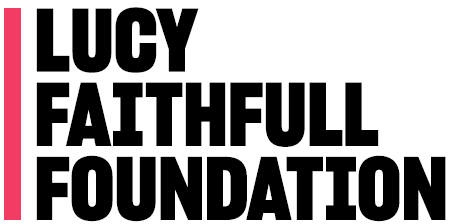A year on the front line: reflections on the first 12 months of our project to tackle harmful sexual behaviour in schools
Laura Nott, Schools Project Manager at The Lucy Faithfull Foundation
In June 2020, a wave of revelations about rape culture and harmful sexual behaviour in schools made media headlines through the Everyone’s Invited movement. This prompted a cross-governmental response and an Ofsted review found:
“The issue is so widespread that it needs addressing for all children and young people… schools, colleges and multi-agency partners [should] act as though sexual harassment and online sexual abuse are happening, even when there are no specific reports.”
There was an urgent need for long-term solutions.
In September 2021, the KPMG Foundation supported us with funding in collaboration with the University of Surrey to undertake a three-year action research project.
The project began in January 2022 with four main goals:
- to support schools when a harmful sexual behaviour incident occurs and ensure all involved are supported well
- to ensure schools benefit from the experience of others
- to help statutory agencies understand key issues schools face so they can provide better support
- to share evidence from the project which can contribute to the body of knowledge around tackling and responding to harmful sexual behaviour in schools
What we learnt from the first year of working with students, parents and carers, and education professionals is published in the latest in our series of Faithfull Papers.
Listening and learning from students and staff
We worked directly in a diverse range of ten secondary schools within the West Midlands region and gave additional support to 40 more through our Stop It Now! helpline.
As an action research project, what we learnt from working with our early schools informed and supported the work we did with the later schools – this learning loop is an integral part of our project.
During interviews, surveys and focus groups conducted at each school, staff and students identified a range of factors that contribute to harmful sexual behaviour. Reoccurring themes included emotional dysregulation, experiences of abuse in the home, sexist attitudes and beliefs, peer pressure, poor understandings of consent and healthy/unhealthy relationships, normalised ‘banter’ and low-level harassment.
Students told of experiencing online bullying and harassment; they had perceptions of teachers not intervening and a normalisation of sexist comments; and they described feelings of being unable to express themselves. Many were concerned that Relationships, Sex and Health Education (RSHE) didn’t reflect the reality of their lives and they didn’t trust or use reporting mechanisms in their school for raising concerns.
Staff highlighted image-sharing, understanding consent and the impact of pornography on young people. They described facing significant challenges in responding to daily safeguarding concerns and managing differing stakeholder perspectives; they were concerned about waiting lists and thresholds for statutory services support; and they described a significant emotional impact on themselves when dealing with complex safeguarding issues.
We all have a role to play
Having spent over 12 months learning from and adapting to the unique challenges that HSB poses in schools, I am encouraged by the desire of everyone involved to find collaborative solutions to these complex situations.
I have been really impressed by the steadfast commitment from schools and education professionals to tackle this problem. What has also been clear, is the need to meet that commitment with the necessary training, resources and recognition of the emotional impact on staff dealing with these complex situations. Both staff and pupils carry a heavy burden, and many continue to grapple with significant trauma due to HSB that they or their peers may have experienced in the past.
Yes, there are challenges, but despite these, I am heartened by students’ optimism and inspired by their spirit.
HSB poses many problems – the time is now to find solutions and we identified three particularly promising areas: Protective Behaviours training, bystander education and participatory RSHE.
Planning for the future
While there is no doubt the first year of this project has been insightful and inspiring, more questions have arisen than have been answered. These questions will help guide our future work.
1. Supporting effective RSHE delivery
How can teachers be better equipped to deliver impactful RSHE? While specialist teachers can be effective, the broader staff body's involvement is crucial due to the everyday interactions they have with students and the impact that the language and attitudes displayed by staff can have upon the whole school culture.
2. Student engagement in problem-solving
Students' active involvement in identifying and solving harmful sexual behaviour issues is vital, given the complexity of the problem. However, the challenge lies in effectively and inclusively engaging students while maintaining school safety.
3. Balancing responsibility
Balancing the roles of staff, students, and parents/carers in addressing HSB requires careful consideration. There's a risk of unfairly burdening students with preventing their abuse. Finding a healthy balance of empowerment and collaboration is essential.
4. Improving reporting rates
HSB reporting rates are hindered by school and student cultures. An ‘anti-snitch’ culture can often prevent students from reporting HSB, alongside their concerns about the safety of reporting mechanisms. Instead of relying solely on reporting to adults, exploring ways to equip students with tools to address problems themselves could be effective.
5. Considering wider social influences
HSB interventions must consider influences beyond the school environment, such as media, families, and communities, to create effective solutions.
6. Whole-school approach
Implementing a "whole-school approach" to harmful sexual behaviour requires consistent policies and practices that account for the concerns and priorities of young people. Safeguarding policies must balance confidentiality and escalation.
Young people must lead the conversation
The first year of delivering this pioneering project has put into sharp focus the complex issues faced by students and school staff alike.
The students themselves have expressed a desire to take a lead role in the conversation.
But it’s not up to young people to protect themselves.
The teachers and other education professionals we have worked with stand ready to put what we’ve learned into practice, and we will continue to learn and develop throughout the second and third years of the project.
We have listened, we have heard, and we are responding, and we are already working with our second cohort of schools, with a focus on addressing staff needs. In Spring 2025, we will publish a comprehensive report summarising findings from all 30 schools.
We are committed to making schools safer, together.
Find out more
Reserve your place on our free webinar now to find out how we can all make schools safer, together.
If you’re interested in the project and to get involved, please get in contact with Laura Nott, our Schools Project Manager, on 07706 347981 or lnott@lucyfaithfull.org.uk.
Take a look at our information for schools, which includes free resources, information and guidance.
Want to support our work to prevent child sexual abuse? Find out how.
Sign up for news & updates
Fill in our newsletter form hereTo support our work to protect children, donate today.
Donate today





